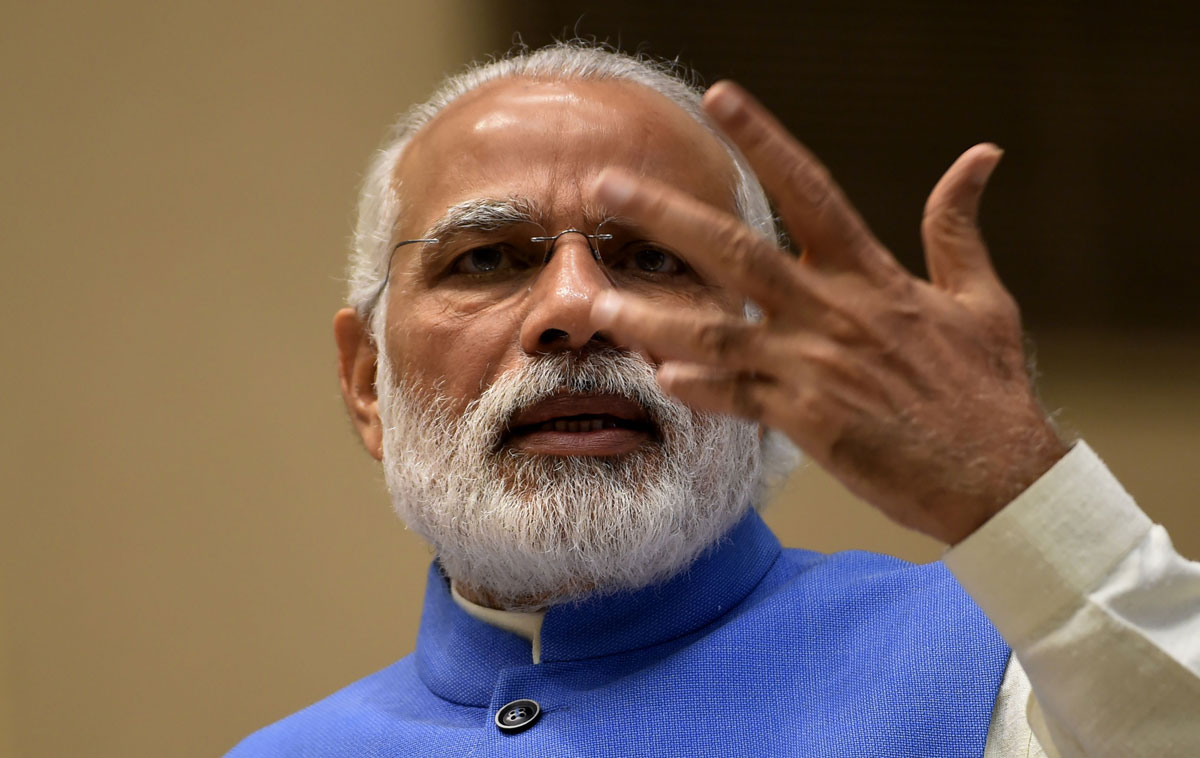HAVE UNDERTAKEN MAXIMUM REFORMS
Indian Prime Minister Narendra Modi gestures as he speaks. (Money Sharma | AFP | Getty Images)
Rejecting suggestions that his government had failed to pursue “big bang” liberalization measures, Indian Prime Minister Narendra Modi said he has undertaken maximum reforms but there is “an enormous task ahead.” “I have actually undertaken the maximum reforms,” Modi told The Wall Street Journal in an interview ahead of his visit to the U.S. next month at the invitation of President Barack Obama, writes Lalit K. Jha. (@Siliconeer, #Siliconeer, #namo, #WSJ, #TheWallStreetJournal, #India)
Modi said many of the changes he has put in place would have been regarded by previous administrations as difficult to implement, but now that he has done them, to his critics they no longer qualify as “big bang.”
“When I came to the government, I used to sit down with all the experts and ask them to define for me what is the ‘big bang’ for them,” he said, adding, “Nobody could tell me.”
But at the same time, he was quick to add that there was a need to do more.
“I have an enormous task ahead for myself,” Modi said while responding to questions in Hindi.
On criticism about industry finding it difficult to acquire land for projects, Modi said the efforts to amend the land acquisition law at the federal level were “over now” and it is now up to individual states to pursue changes.
Modi also said he would look to states to further liberalize the country’s rigid labor laws, the daily reported.
“Labor reforms should not just mean in the interest of industry,” he said adding, they should also be in the interest of the laborer.
Responding to a question on Goods and Services Tax (GST) bill, Modi said he expects the legislation to be passed this year.
The GST bill, which has been approved by the Lok Sabha, is pending in Rajya Sabha because of stiff resistance by Congress, the largest party in the House, which had sought certain changes in the bill.
Government has been insisting that most of the parties, except Congress, are in favor of GST, which will bring about a uniform indirect taxation regime in the country.
The Prime Minister said after coming to power his government had opened up more of the economy to foreign investment and made changes to curb corruption, fill gaps in rural infrastructure and make it easier to do business.
The Prime Minister also underscored the importance of public sector undertakings in the country.
“In any developing country in the world, both the public sector and the private sector have a very important role to play. You can’t suddenly get rid of the public sector, nor should you,” Modi said.


